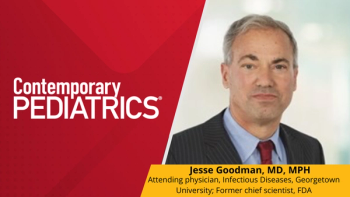
Understanding TMS therapy for major depressive disorder
Melissa Fickey, MD, explains TMS therapy for major depressive disorder, and highlights key positive data for NeuroStar TMS Therapy, which was presented at the American Academy of Child and Adolescent Psychiatry (AACAP) meeting in Seattle, Washington.
Contemporary Pediatrics was joined by Melissa Fickey, MD, a board-certified child, adolescent, and adult psychiatrist at Embracing Life Wellness Center in Riverview, Florida, to discuss transcranial magnetic stimulation (TMS) for major depressive disorder (MDD) in adolescents and young adults.
"Essentially, by delivering magnetic pulses to the emotional regulation center, it’s forming action potentials across the neurons to get the neurons to fire on their own,” Fickey explained.
The discussion comes after data for NeuroStar TMS Therapy, an FDA-cleared TMS treatment, was presetned at the American Academy of Child and Adolescent Psychiatry (AACAP) meeting in Seattle, Washington, taking place from October 14 - 19, 2024.
Investigators sought to determine the outcomes of adolescents and young adults aged 12 to 21 years with depression and anxiety who were treated with TMS in community settings. Data were extracted from a treatment registry of 1283 patients with MDD, of which 682 were aged 12 to 19 years and 601 were aged 20 to 21 years. The primary outcome measures were the Patient Health Questionnaire-9 (PHQ–9) and Generalized Anxiety Disorder-7 (GAD–7).
According to results, in completer sample (n = 1169) 59.4% and 36.4% me the PHQ-9 response and remission criteria, respectively. Marked dose-response effects were observed, with antidepressant effectiveness improving with longer treatment courses (F5,1277 = 19.10; [P < .0001]).
"The trajectory of improvement showed the greatest symptom reduction over the first 10 sessions, with no plateau before treatment termination," stated the study authors. In addition, there was a significant correlation between percentage change in PHQ-9 and GAD-7 scores (r [129] = 0.77; [P < .001]).
Fickey explained how this type of treatment can be beneficial not only for the child, but with this data, to reassure families as well.
"I know that it can be very difficult dealing with parents and children that struggle with depression. As a child psychiatrist myself, I know that on the first line these pediatricians, they're experiencing it as well, and they might be trying to treat these patients before we even get to see them to help intervene," said Fickey.
"Now that we have this, I think it can help the conversation of treatment so that they feel more comfortable, perhaps, and a non-medication route... I know it can feel helpless as a provider when you see this family dynamic, [but] now you can offer this non-medication option and have the FDA data to back it."
Reference:
Fitch, J. TMS treatment improves depressive symptoms, anxiety in adolescents. Contemporary Pediatrics. October 17, 2024. Accessed October 18, 2024. https://www.contemporarypediatrics.com/view/study-tms-treatment-improves-depressive-symptoms-anxiety-in-adolescents
Newsletter
Access practical, evidence-based guidance to support better care for our youngest patients. Join our email list for the latest clinical updates.








